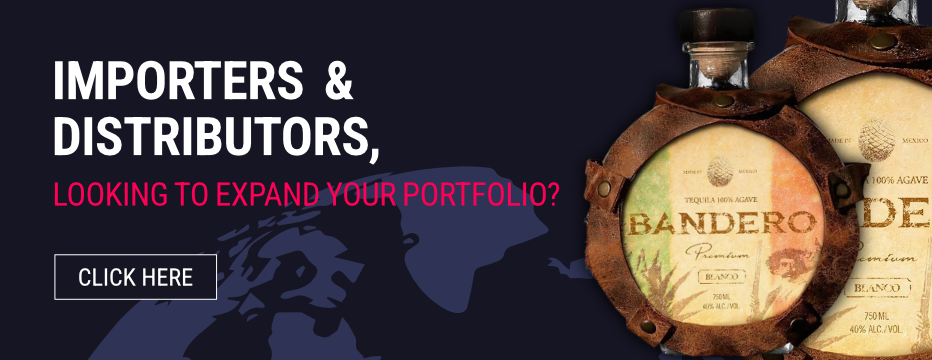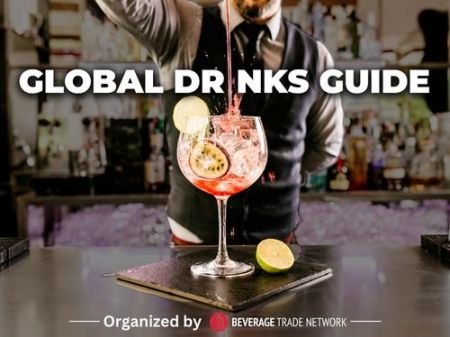Sommeliers Choice Awards 2024 Winners
Getting Your Wine Into Shanghai
Never has a question seemed so deceptively simple: what is the process for getting your wine into Shanghai? The first step is undoubtedly to spend longer than you would in other markets finding an importer.

In the interest of answering this seemingly straightforward query, we asked everybody active in the market from the 800 pound gorillas to the tiny guys, to the people down the value chain who work with them. One trend was clear: the big players generally said that the process is all completely the same – this is likely because they are under so much government scrutiny that they cannot stick a toe out of line – but medium and smaller players generally allowed that there was a little bit of wiggle room.
Either way, it is important to be aware that if you are not dealing with an ASC, a Jebsens, a Torres or a Summergate (the most visible, active and entrenched of the foreign-owned firms), there may be some idiosyncrasies that arise with the customs process. Even if you are working with one of the bigger players, your wine will almost certainly take longer to arrive in your importer’s warehouse than you would ideally like it to.
This generally arises from the fact that Chinese customs procedures are quite extensive, sometimes requiring things that are either impossible or very difficult to supply. For example, although you technically need to provide health certification, this process takes six weeks, and you are required to supply several samples; the added complication means this step will often simply be bypassed by people operating on a time limit (to quote David Andrews, formerly of ASC, “in China everything is possible, but everything is difficult”).
The sample process itself is highly fraught, as technically you are not allowed to send samples of wine into the country at all. In order to get a bottle or two to a potentially enthusiastic account, you have to send your bottles to Hong Kong and ask somebody to carry them into China by suitcase. Otherwise, you can try sending the sample in as a gift two bottles at a time. We have even heard of some producers doing so and labeling their bottles “fruit juice” in the hopes that nobody at customs will notice, none of which are risk free options.
While Hong Kong’s lack of regulation and taxes on wine (read full report on Hong Kong Wine Market), and the cavalier attitude these have engendered, have lulled people into thinking the Chinese wine market in general is very laissez faire, this is most definitely not the case. You may be able to lean on friends and sympathetic colleagues to get a case of wine into Hong Kong for an event, but don’t count on that approach for Shanghai. For more on the Hong Kong wine market, see Debra Meiburg’s Guide to the Hong Kong Wine Trade 2014, also released this year.
Now that we’ve covered why it’s difficult to get in, we should address some reasons why you might be tempted to stay out. We can all agree that China does not have the best track record when it comes to protection of intellectual property. A few landmark cases this year leave some room for hope, but sadly others left us shaking our heads. The most infuriating aspect of the process is that China has a first registrant’s rule when it comes to brand protection so if somebody has registered your brand name before you can get to the bureau to claim it, they can actually sue you for using what you consider your own brand name in China.
According to May Chan of Ella Cheong (Hong Kong and Beijing), who specializes in this area, Chinese trademark applications are filed with the China Trade Mark office, taking around 16 months for a smooth application to proceed to registration. You are strongly advised to register marks in both English and in corresponding Chinese versions. (Read full report on how to protect your wine trademarks in China)
Alberto Fernandez of Torres China expressed frustration at the fact that even once you start the process of registering your trademark, there is still a two year window before it is protected by law (if you’re unlucky); and that is plenty of time for havoc to be wreaked. It is technically possible to request the cancellation of a trademark that has been registered by the improper person, but this takes even longer.
One of the most frightening aspects of IP protection in China, but one of the most basic facts that you will have to accept in order to work in this market, is that at the end of the day you cannot fully trust anyone, even your importer. For example, even if your importer helps you come up with your Chinese name, even if it is the most brilliant stroke of genius in the history of branding, make sure it is you who registers the trademark, not your importer. Break-ups happen, and it’s key to protect your interests.
Once you’ve figured out how to protect your name; what about building a brand? Although in many markets getting a journalist to attend your wine event may seem like a struggle, it is rarely an activity that affects your balance sheet. In Shanghai – which is admittedly a much more sprawling city and thus less convenient to navigate on the way to various wine tastings, seminars and dinners – be prepared to compensate any press who attend your event for their travel expenses, and perhaps for their time.
Freelance journalism is still a new career path in what was formerly an even more tightly controlled press, and many in the field are still negotiating the ins and outs. Some are closer to filling the publicist role, while others are truly more in line with what would be recognized as journalism in the West, but you should be aware that many will insist on a “lucky packet” to show up at an event at all, and that’s before they put a finger to their keyboard. An actual article will entail another outlay (according to one reliable importer source, you had better hope you have a spare 50-80,000 yuan in your budget (US$6,400-10,000), or that story describing your wine’s brilliant fruit and refined tannins may never see the light of day).
The question, as with everything in this market, is whether it’s worth it. There are as yet not that many fully-fledged wine publications that have mass circulation even within Shanghai, and even fewer that have reach throughout the country (even Decanter is not the “Decanter” of China). A number of foreign publications have entered the market on various occasions only to find that the challenges exceed the benefits, with a few settling on an online rather than a hard copy presence.
So how do you proceed, particularly when we’ve just told you to trust nobody?
Despite the massive temptation to “go with the flow” and “play the game before it plays you,” we say that maintaining your integrity to the greatest degree possible is your best chance of ultimate success. The first step is undoubtedly to spend longer than you would in other markets finding an importer you like and trust (to a reasonable degree), who gives you reasonable estimates of future orders and depletion (steer clear of people who make giant orders without explaining where the wine will be sold), and then to stick with them (everything in this market takes longer than you would like it to).
.jpg)
Much like Shanghai husbands (apparently considered some of the most loyal in China) Shanghai importers value fidelity above all. In our discussions with Shanghai importers, it was emphasized again and again how critical it is for an importer to know that they have exclusive rights to manage your brand for China. Those we spoke with claimed that except for a few collectible bottles, they were the exclusive agents for nearly 100% of their portfolio (only 41% of importers were able to claim this in Hong Kong).
Because there are so many alternative distribution channels for wine, the fact that your Dalian importer is hundreds of miles from your Shanghai one does not mean that their imports won’t cross paths. The Shanghai importer will be upset enough finding out you’ve been going behind their back, but on a more pragmatic level the lower prices charged by a wholesaler for the Dalian bottles can totally devalue your brand in the Shanghai market.
The one grey market channel you have little control over is wine brought in over the border from Hong Kong. Although this conjures up images of shady characters with rattling suitcases skulking their way through customs, there is also a fair amount of legitimate activity by importers who will occasionally move wines from their Hong Kong offices to their mainland offices to take advantage of the expedited customs processing in Shenzhen.
The issue remains that even within the same company the portfolio for Shanghai may not match the portfolio for Hong Kong. This means you may find yourself in the same portfolio as a brand in one market and competing head to head with them in another, which can make for some very awkward portfolio tastings. This is why many wineries have, where possible, opted to swap either Hong Kong or Chinese importers to make sure they are with one company for both markets.
If you are with an importer who has widespread geographical reach, this can be a real boon as decision making is very centralized, so in theory you only have to deal with one person but you can still reach the whole Chinese market. All the wine will come in through one port, the portfolio mix is decided centrally and regional managers don’t have much of a say beyond making suggestions on how the portfolio can be adapted to their market. If your importer is somewhat more modest in his reach and you’re desperate for broader access, either initiate a discussion about selling through to wholesalers with broader access or switch importers outright; nobody likes a two-timer.
The above article is contributed by Debra Meiburg MW and Sarah Heller, Executive Director of Meiburg Wine Media (www.debramasterofwine.com). Debra Meiburg is one of three Masters of Wine in Asia and ranked 7th Most Powerful Woman in Wine by The Drinks Business. BeverageTradeNetwork.com would like to thank Debra and Sarah for providing BTN members great insight on Shanghai wine business.
Not a BTN Member yet?
Get BTN Premium membership and have full access to articles and webinars on BTN + other benefits like:
Full Access to BTN Consultants
Full Access to Buying Leads
Post Unlimited Brands
Full Access to all Articles and Webinars
Full Access to BTN Live conferences presentations and speaker sessions
Discounted rates to exhibit at major partner events and conferences
And Much More...
Your BTN membership will reduce your trial and error time: Why experiment with your branding and distribution when you can fast-track your time to success? Get 'How to do it' content which will help you improve your sales and grow your distribution. Just one article can help you make better decisions and improve your distribution strategy. Try it






.jpg)








